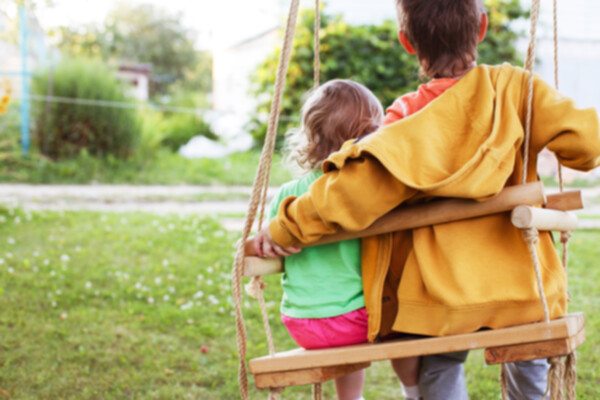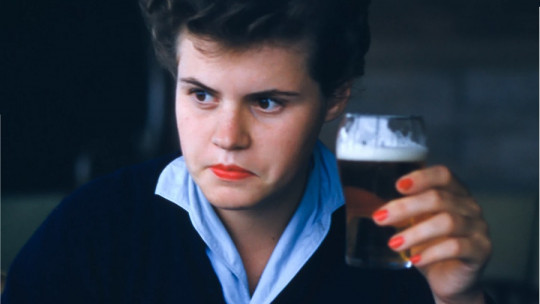Do you think your children suffer from childhood jealousy or sibling jealousy? Find out how childhood jealousy can affect you and what are the causes of this type of attitude.

Jealousy, especially childish jealousy, are a very common feeling in human relationships and more generally in intimate relationships. In fact, it is difficult to combat jealousy since it is one of the most painful feelings and can generate a lot of aggression. All people are jealous in certain situations.
They do not work like a flu, for example, that you either have or you don’t have, but rather they appear and disappear or transform and cause less discomfort when we know how to manage them. The jealousy They manifest themselves due to the perceived threat of losing someone they love due to the presence of another who may be more interesting or due to the danger of not being cared for or reciprocated as we would need or at least as we would like.
What childish jealousey are?
The childish jealousy They can appear after the first year and a half of life and last up to 7 years of age, it is usually more common in boys than in girls. This behavior affects 50% of the child population.
Jealousy in children is a normal response to fear or loss of love. The appearance of jealousy It is also due to the personality of the child since there are children who are more prone to these feelings. The important thing to know how to treat childhood jealousy is to distinguish between what is normal jealousy and what is called pathological jealousy. If it becomes chronic, it can affect the development of the child’s personality, appearing symptoms such as aggressiveness, insecurity and imbalance in the interpersonal relationships.
Symptoms of childhood jealousy or jealousy between siblings
It is important to distinguish between three concepts that may seem similar, but in reality have characteristics that distinguish them when we try to detect the jealousy in children.
1. Rivalry
The feeling of “rivalry” does not appear constantly over time but is a behavior that varies depending on the child’s stages. These usually appear when little brothers They have more attention than the older ones.
2. Envy
On the other hand, the feeling of envy and jealousy in children gives rise to confusion, however, it is important to differentiate that envy is the desire to have what others have, while jealousy is characterized by the fear of losing affection. from another person. Envy in the jealousy of brothers or in childish jealousy They occur in situations where parents or other people are the protagonists (and not when they are objects to which attention is paid).
3. Distrust
The child’s distrust is a way for him to protect himself and set limits for others so that they do not harm him, therefore it is not a completely negative feeling. Yes, it is when this distrust becomes excessive due to the childish jealousy this is when emotional problems arise, and they must be regulated without completely eliminating them since this feeling has the particularity of helping us protect ourselves against any aspect that generates insecurity.
4. Insecurity
When children appear insecure in front of the person they are jealous of, this can be a clear sign that these feelings exist. The lack of confidence in these situations is a clear reference to the fact that they feel sibling jealousy or childhood jealousy.

Causes of childhood jealousy or jealousy between siblings
Although jealousy between younger and older siblings are very common, there are some attitudes on the part of parents that encourage these types of attitudes in their children.
1. Excess affection
He dear towards our children is more than necessary, but sometimes excess ends up being detrimental to them developing their own self-esteem. This happens because showing too much effect to children makes them (depending on their personality) feel superior to others. This makes them feel jealous or insecure if they meet someone they pay more attention to.
2. Make comparisons
Although parents often have the habit of comparing children, the reality is that this attitude is very damaging to their self-esteem. In this way, establishing a comparison can increase the feeling of rivalry between two children, making them childish jealousy can arise at any moment.
3. Protecting our children too much
There are parents who worry too much about their children. Worry is a normal feeling in parents, but when it arises in excess we can affect the safety of our children.
4. Unnecessary skills
When parents are excessively competitive, children can copy these attitudes and extrapolate them into their other relationships. This is why the sibling jealousy or childhood jealousy in different situations.
5. Control too much
Being too strict with our children can also lead to a situation where the envy between siblings or between children.
6. Too much attention to the brother
When little siblings are born, parents sometimes forget about the other member of the family. It is for this reason that when parents shift their attention from a child and focus too much on him, problems end up arising. brother jealousy.
Why does jealousy between siblings or childhood jealousy exist?
Jealousy has the function of ensuring self-protection, that is, ensuring everything we need to live and survive. Children have the need to defend their right to be a priority for their parents, who are the ones who ensure their care. For this reason, when another child is born, the eldest demands to have the same attention that he had before the birth. The brother jealousy They arise because the child protects himself since he sees that he will now have to share the parents’ attention and this, sometimes, generates a lot of insecurity and lack of protection. Throughout life, jealousy can appear in situations or times of change. Many times the birth of a sibling is the first important change that a child experiences.
Apart from the situations themselves, which are more than favorable to be able to generate jealousy there are other factors that can enhance them: the characteristics of the boy or girl, the evolutionary moment, the characteristics of the parents and the family environment.

How to treat childhood jealousy or jealousy between siblings?
We can learn appropriate strategies to manage or avoid the jealousy of our children. Sometimes, curiously, what we do to avoid them turns out to even further reinforce jealous behavior. We must be cautious because with the best intentions, sometimes we generate greater discomfort. It is true that even though we do things to avoid them, children will continue to show jealousy. It is at this moment when we must implement strategies to manage them and accompany our children so that they also learn. To know how to combat childhood jealousy, there are some rules that you can follow.
1. Listen to your child
Solving the behavior of a jealous child is more difficult than it seems at first glance. The reason is why jealousy They are not superficial but rather they hide a root problem. For this reason, it is essential to listen to children to get a glimpse of their authentic concerns.
2. Channel your negative emotions into positive ones
To help your child change their attitude, a way to know how to deal with jealousy between siblings or between children is by focusing your negative thoughts on positive ones. This way, if the sibling or other child gets better grades, you can encourage the child to get better grades next time.
3. Don’t scold him when he shows jealousy
When children show a negative attitude because of childish jealousy the best thing is to treat them with affection and redirect their attitude.
4. Teach him to share
One of the ways to make our children understand that they must avoid jealousy is by making them understand the importance of sharing.
5. Don’t compare them
The comparisons between siblings or between children They do not have a good effect on your self-esteem. For this reason it is more than harmful to establish the differences that exist. The ideal would be to highlight what each of the children is good at.
6. Instill positive thinking
The best way to know how to combat jealousy It is through attitudes and good thoughts. In this way, the best activities to work on jealousy between siblings or between children are by promoting positive attitudes.
It is important to keep in mind that sometimes confuse childhood jealousy with other problems that may be affecting the child. You have to be cautious when interpreting your feelings. It’s not always jealousy. Although they are common feelings, we must take them seriously and not leave children alone with this feeling.
Poor management can facilitate the development and installation of a jealous personality. In the event that there is good management and, despite this, we observe that the intensity of jealousy does not decrease, it lasts over time and generates more and more personal and family discomfort, we must ask for professional help to be able to assess whether It is pathological jealousy.








